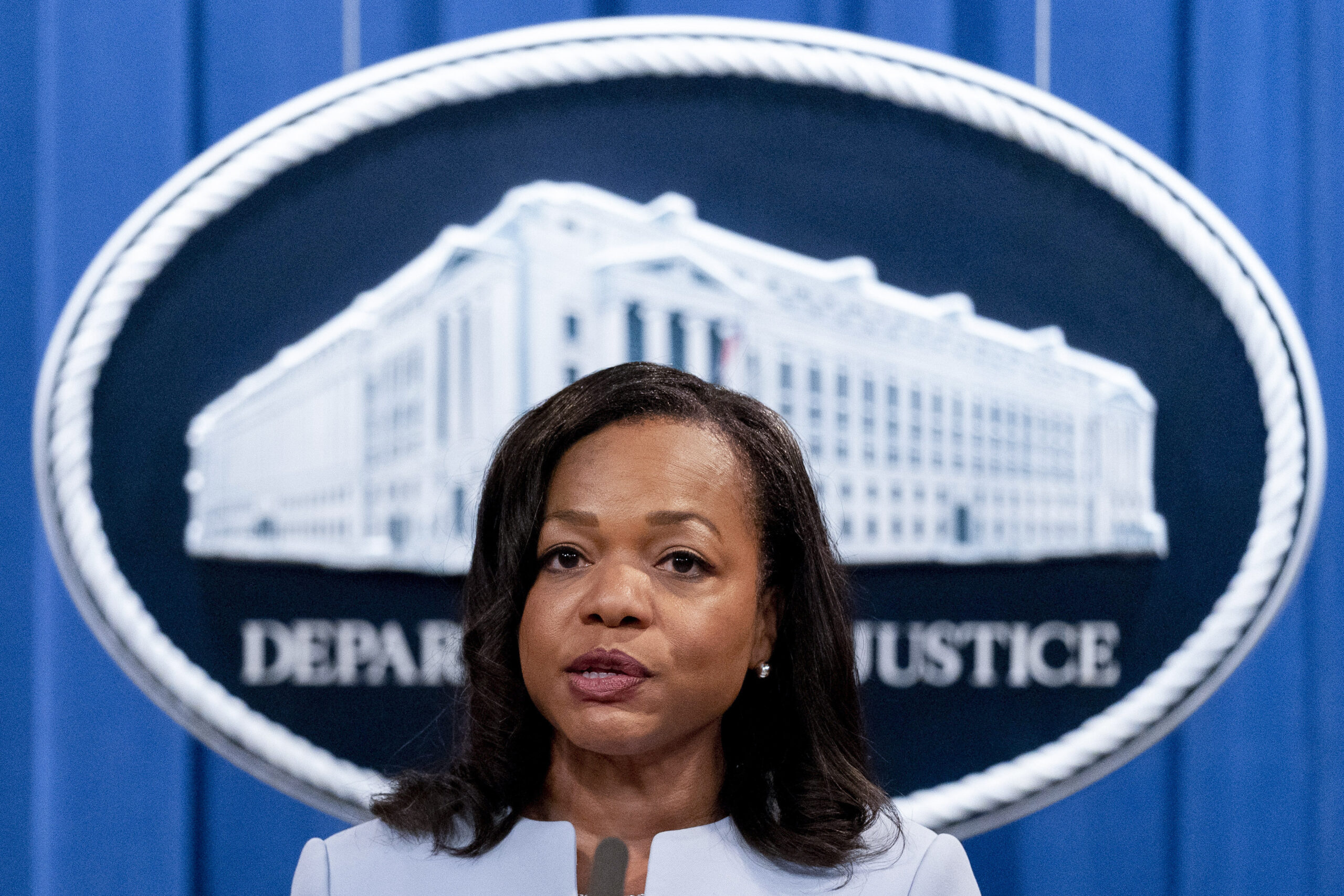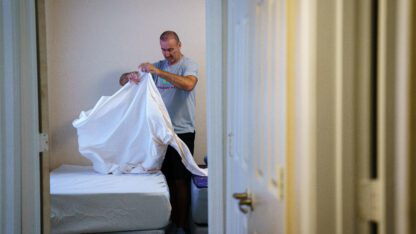The U.S. Department of Justice on Tuesday announced a statewide civil rights investigation into Georgia prisons, citing particular concern about violence.
Assistant Attorney General Kristen Clarke, who oversees the department’s civil rights division, said the investigation will be comprehensive but will focus on “harm to prisoners resulting from prisoner-on-prisoner violence.” It will also look into sexual abuse of gay, lesbian and transgender prisoners by both prisoners and staff.
“Under the Eighth Amendment of our Constitution, those who have been convicted of crimes and sentenced to serve time in prisons must never be subjected to cruel and unusual punishments,” Clarke said during a video news conference. “We must ensure the inherent human dignity and worth of everyone, including people who are incarcerated.”
Georgia Gov. Brian Kemp’s office referred a request for comment on the investigation to the state Department of Corrections.
“The GDC is committed to the safety of all of the offenders in its custody and denies that it has engaged in a pattern or practice of violating their civil rights or failing to protect them from harm due to violence,” Corrections spokeswoman Lori Benoit said in an email. “This commitment includes the protection of lesbian, gay, bisexual, transgender, and intersex (LGBTI) prisoners from sexual harassment, sexual abuse, and sexual assault.”
If the investigation reveals reasonable cause to believe there is a systemic constitutional violation, the Justice Department will provide written notice of any violations, along with supporting facts and minimal remedial measures, Clarke said. She added that the department would work with the state to establish solutions.
Clarke said the Justice Department is committed to trying to address the effects of prison staff shortages, inadequate policies and training and the lack of accountability.
Understaffing is a particularly devastating problem, Clarke said, noting that it can lead to inadequate supervision and violence. It can also keep people from being able to get necessary medical and mental health care. Without adequate mental health care, people experiencing mental health issues may harm themselves or commit suicide, risks that are compounded if they’re locked up and isolated in solitary confinement, she said.
The Justice Department’s investigation was prompted by an extensive review of publicly available data and other information, Clarke said. Among the things considered, she said, were concerns raised by citizens, family members of people in prison and civil rights groups, as well as photos and videos that have leaked out of the state’s prisons that have “highlighted widespread contraband weapons and open gang activity in the prisons.”
Clarke pointed to at least 26 deaths in Georgia prisons by confirmed or suspected homicide as well as a reported 18 homicides so far this year in Georgia prisons. She said there have also been reports of other violent acts, including stabbings and beatings.
People of color are disproportionately represented among the nation’s prison population, Clarke said, adding that Black people make up 61% percent of the people held in Georgia prisons but only about 32% of the state’s population. She also said investigators would continue a current investigation into whether Georgia adequately protects lesbian, gay, bisexual, transgender and intersex people held in prisons from sexual abuse by other prisoners and staff.
The Justice Department in April filed a brief in a lawsuit filed by a transgender woman held in a men’s prison in Georgia. The department didn’t take a position on the facts of the case but said the Constitution requires prison officials to keep transgender people reasonably safe from substantial risk of harm and provide them with adequate medical care.
Sara Totonchi, executive director of the Southern Center for Human Rights, which on Friday filed a lawsuit challenging the solitary confinement conditions at a Georgia prison, said she is grateful for Justice Department intervention.
“While this is a first step, it is an incredibly significant one in our struggle for accountability and safety inside Georgia prisons,” she said, adding that she’s been involved in advocacy work around prisons for two decades. “In my 20 years, I have never seen the prisons in such crisis. I have never seen this level of violence, of illness and of apathy from management.”
State Rep. Josh McLaurin, a Sandy Springs Democrat, has been vocal about problems in Georgia prisons and said he’s been frustrated by a lack of information and cooperation from the Department of Corrections. He welcomed the federal investigation, but said it can take a long time for such actions to bear fruit.
“I’m very pleased about the trajectory but I want to stress that there are still crisis conditions in prisons that Georgia officials should be addressing immediately with any tool at their disposal,” he said in a phone interview after the announcement.
To that end, he appeared before a meeting of the Georgia State Board of Pardons and Paroles Tuesday morning just before the federal investigation was announced and said the state prison system is melting down, with the coronavirus pandemic contributing to a staff shortage that allows more deaths and violence.
He said the board needs to be in an “emergency mode” that allows it to release more people in response to conditions.









